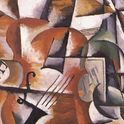On 31st October 2023, barely three weeks after the start of the war in Gaza, Mike Rothschild shared on X a number of screenshots of posts about the war. One, by “Elizabeth Farrell” (aka @Elizabe32413720), read: “ISRAEL NOW CEASES TO EXIST ROTHSCHILDS LEASE RAN OUT”.
Another, by “Joanne” (aka @Joanne60183156), continued the theme: “Israel has just lost its RIGHTS TO EXISTENCE. Your rights to operate. They are now a State that operates illegally. Everything they do now is illegal. That is why they are surrounded by warships from all countries.
“So, all the corporations, banks, etc. that operate and are owned by the Rothschild Empire and all corporations registered in Israel but operating around the world are now illegal. These are around 90% of corporations in the world such as the WHO, Blackrock, WEF, etc.”
Given the suspicious handles, these particular posts are likely to be from “fake” accounts, operated by a bad actor keen to sow discord and disinformation. But it hardly matters as “real” people also share such viewpoints online.
What struck me when I saw these posts was how they managed to knit together past and present in such a seamless way. Antisemitic tropes about the nefarious, all-encompassing power of “The Rothschilds” date back to the 19th century. It didn’t take long after the Gaza war broke out for people to find a variation on the theme: Israel is a corporation “leased” by the Rothschilds (from whom is never fully explained) on behalf of the evil Zionist Jews; the expiry of the lease means the end of Israel.
Mike Rothschild, the author of this new book about how his namesake family became a central component of one of the most venerable antisemitic myths, is not actually a scion of the famous Rothschild dynasty. While his handle on X is “Mike Rothschild (no relation)”, there was a time when any Jew might wish to imply that they were part of that illustrious family. In the 19th century, they were widely admired—not only by Jews—as the most successful example of modern Jewish emancipation.
There was a time when any Jew might wish to imply that they were part of this illustrious family
The founder of the dynasty, Mayer Rothschild (1744–1812), was born in the Frankfurt ghetto; by the end of his life, Jews had been “freed” in most parts of Europe. He made his name and fortune as a private banker for the landgrave—which is to say, the presiding noble—of Hesse-Kassel, a state in the Holy Roman Empire, now situated in Germany. By leveraging the expanding opportunities for Jews in a rapidly changing Europe, he managed to establish his five sons as bankers in Paris, Frankfurt, Vienna and Naples. By the mid-19th century, they dominated the international bond market; they lent to royal families, politicians and even the Vatican. As unofficial diplomats, they smoothed over conflicts and acted as a “back channel” in high politics.
While conspiracy theories about the Rothschild family developed slower than you might imagine, their international network and their sheer indispensability meant that, by the middle of the 19th century, a dark mythology had built up around them—much of which has survived to this day. One of the most persistent myths is that the family owes much of its fortune to Nathan Rothschild being the first man in London to receive news of Napoleon’s defeat at Waterloo. By pretending that Napoleon had won, he crashed the stock market and bought up the devalued stock—which rebounded once news came of the British victory. There is no truth to this story, but it still forms an essential part of a constellation of lurid accusations about the Rothschilds—that they “own” almost every state bank, that they are the “secret rulers of the world”—that circulate to this day.
Naturally, Rothschild conspiracies have been an essential component of modern antisemitism. They have lent a recognisable “face” to the amorphous tales of Jewish secret power found in texts such as The Protocols of the Elders of Zion. The family was an easy propaganda target for the Nazis, and (despite their circumstances being greatly reduced during that period) neo-Nazis continued to demonise them after the war.
Yet, while the Rothschilds retain a powerful presence in today’s memeified online culture, something significant has changed. The title of Mike Rothschild’s book is an allusion to a Republican congresswoman for Georgia, Marjorie Taylor Greene, who in 2018 shared a conspiracy theory that a catastrophic Californian wildfire had been started by an accident involving a “space based solar generator”, whose laser had missed the ground station to which it had been beaming energy. Naturally, among the consortium funding this nefarious project was a Rothschild bank—and, though Greene didn’t use it herself, the subsequent, fast-spreading term “Jewish space laser” made explicit what had previously been relatively implicit: it was the Rothschilds wot dun it.
When someone like Greene amplifies a Rothschild conspiracy theory, it can be difficult to know how to respond. Does the inclusion of the Rothschilds in a wider conspiracy myth transform the whole into a fundamentally antisemitic myth? Or is it just one way of adding extra depth and spice? Might some of those who mention the Rothschilds genuinely not know—or care—that they were Jewish?
In Greene’s case, the answers were not clear cut. She doesn’t have a track record of spouting Jewish conspiracy theories, such as Holocaust denial. The “space laser” conspiracy is only one among many that she espouses, and its “purpose” is to discredit green energy rather than Jews. But then, it’s unwise to expect any coherence from Greene, given that she is associated with another conspiracy myth—QAnon—that is defined by its weaponised incoherence.
While QAnon resists easy explanation, James Ball’s The Other Pandemic offers a pithy initial definition at the start of his book:
The concept that the world is run by a satanic, paedophilic elite led by Hillary Clinton. The presidency of Donald Trump waged a heroic battle to stop that elite, all behind the scenes. And it was cut short by the ‘stolen’ US presidential election of 2020.
Towards the end of the book, though, Ball argues that QAnon should be defined less by its content than by its form. It is a “living pathogen”, a “digital virus” that is spread through the internet, bolstered by states such as Russia.
QAnon is an entity that “eats” existing conspiracies and makes new ones as part of an ever-expanding “meta” conspiracy that explains everything. Importantly, anyone can join in, “take the red pill” and “do their own research”, finding new and elaborate interconnections between anything and everything. There is no “canon” or orthodoxy. Rather, QAnon is strangely pluralistic; if you feel that you are being lied to, you can join in. It doesn’t matter if the conspiracy you construct is contradicted by other conspiracies formed within this subculture, only that you deepen and elaborate the all-encompassing paranoia.
In his characterisation of QAnon as a virus, Ball is pointing to the addictive and overwhelming properties of social media and online culture. At the same time, he argues that the virus wouldn’t take hold if it didn’t address needs unmet in offline culture; especially those for community, connection and meaning. QAnon ultimately began by filling another need—for fun. It was born out of the anarchic and transgressive culture of the online message board 4chan, which used to delight in impenetrable in-jokes expressed as memes, “missions” to take down targets such as Scientology, and “research” on individuals that could sometimes be playfully transgressive and sometimes just abusive.
QAnon ultimately began by filling another need—for fun
Irony abounds: on 4chan, it was never entirely clear whether a poster truly means it or is just taking a position for the lulz. So, at first, in 2017 when a source called “Q” began posting cryptic “drops”, supposedly from deep within the US government, it was hard to know how seriously it was meant to be taken—though many did take it very seriously. QAnon quickly spread beyond 4chan to “infect” other online and offline spaces. It has had real-world effects; most importantly, motivating many of those who attacked the US Capitol on 6th January 2021.
Naturally, the Rothschilds are part of the QAnon universe. To give one small example, James Alefantis, who owns the Washington pizza restaurant incorrectly identified by Q followers as the location for a paedophile ring, was subsequently “revealed” as a member of the family by one conspiracist. And notorious figures who have piggybacked on QAnon to greater popularity, such as the shock jock Alex Jones and veteran conspiracy guru David Icke, have infused that culture with their own longstanding Rothschild obsessions.
But how essential are the Rothschilds to QAnon? And how essential is antisemitism? The fluidity of contemporary conspiracism means that it is hard to judge the relative importance of any one particular element of it. The venerability of “traditional” Rothschild-obsessed antisemitism sits alongside passing fancies that dissipate as soon as they are shared. Ball recounts how, in 2020, an online furniture retailer was “exposed” as an auction house for trafficked children; the names of the products and their prices were the names of missing children and their prices. I doubt that this particular one will still circulate in 200 years’ time.
Antisemitism’s function within conspiratorial milieux is therefore functional, to an extent: to provide historical weight and coherence. And the Rothschilds don’t just help to provide that, they also provide plausible deniability from accusations of antisemitism. (“Honestly, I didn’t know they were Jewish.”)
This possibility is partially confirmed by QAnon’s similar obsession with the billionaire Jewish philanthropist George Soros. For the conspiracists, he is practically interchangeable with the Rothschilds as a hate figure. Soros grew up in 1930s and 1940s Hungary, but survived the Holocaust (the war ended before all the Hungarian-Jewish population could be deported). Naturally, his survival has itself been turned into a conspiracy: that he was actually, despite being an adolescent at the time, some sort of Nazi collaborator. This narrative provides a useful shield against charges of antisemitism—and even elements of philosemitism—to Soros conspiracies. Yet, in other respects, Soros conspiracies function in much the same ways as Rothschild ones.
In the chaotic, ever-expanding world of Q, it is helpful to have at least some fixed points, some sense of permanence in a world of shapeshifting threats. For the moment, powerful and rich Jews (or Jews that are perceived as such) connote the secretive and conspiratorial so perfectly that they are often indispensable.
Ball ends his book with a call for “digital public health” based on a recognition of the ever-present threat of recruitment and radicalisation into conspiratorial circles. Among other things, this will involve the slow work of rebuilding connections with those who have fallen down the rabbit hole, particularly with those who have become estranged from their families in the process. At least part of that will involve reminding people that Jews—whether Rothschilds or otherwise—are actual people rather than symbols of secretive power.
Towards the end of his book, Mike Rothschild points out that the Rothschilds aren’t that important anymore. Their banks have nothing like the assets of the biggest global finance houses. There is only one Rothschild in the Forbes list of the world’s billionaires. So, really, “The Rothschilds” don’t exist anymore. The problem is that antisemitism does exist and, even if it didn’t, the usefulness of the Rothschilds is unlikely to wane any time soon.













